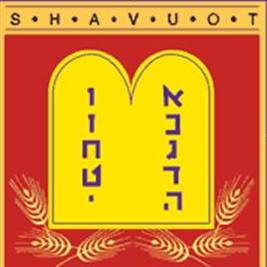Lifestyle/Community
Shavuot – a festival rich in custom and tradition
Generally, among secular Jews in the Diaspora, Shavuot is not considered a highly important festival, save, perhaps, for those who go to synagogue to say Yizkor, a service conducted on the three pilgrim festivals. The other two pilgrim festivals are Pesach and Succot.

OWN CORRESPONDENT
But the rabbis will tell us differently. For Shavuot commemorates probably the most significant day in the history of the Jewish people – when Hashem gave the Torah to the entire nation of Israel as they gathered at Mount Sinai.
Shavuot, also known as the Feast of Weeks and Pentecost takes place on the sixth day of the Hebrew month of Sivan. It signifies the end of the Counting of the Omer, which begins on the second day of the Passover.
Shavuot is also known as the festival of the first fruits in Eretz Yisrael.
It is customary to participate in all-night study – Tikkun Leil – during Shavuot.
The reading of the Book of Ruth is also part of the festival’s traditions, as is the decoration of homes and synagogues with greenery. Children at Jewish schools are encouraged to bring Bikkurim – the first fruits – to class to hand over to disadvantaged members of the community. The tradition of Bikkurim arose when the first fruits were brought to the Temple.
Another custom is to praise the Land of Israel where the seven species are grown – wheat, barley, figs, grapes, pomegranates, olives and dates.
Most of the traditions surrounding Shavuot are customary as, unlike other Jewish holidays, this festival has no prescribed mitzvot, apart from prayer services, refraining from work and its minhagim (customs).
Food, of course, plays a major role in most Jewish holidays and, on Shavuot, the eating of dairy products is part of the tradition. Dishes include cheese cake, cheese blintzes and cheese kreplach.
Prior to receiving the Torah on Mount Sinai, the Children of Israel were not obligated to follow the laws, which today are part of our halachh, and include the ritual slaughter of animals. It was therefore from the early days that the Jews opted to eat dairy foods as their pots and utensils had not been kashered to adhere to the law of the separation of meat and milk dishes.
It is thought by some scholars and rabbis that this led to the dairy tradition we follow today on Shavuot.
The reading of the Book of Ruth on Shavuot is significant because King David, Ruth’s descendant, is said to have been born and died on Shavuot.
Ruth, as is known, was a convert, who was allowed to marry Boaz on the basis of the Oral Law’s interpretation of the verse, “A Moabite may not marry into the Congregation of the L-rd”, which applies only to Moabite men.
The main theme of the Book of Ruth is lovingkindness which personifies the Torah.